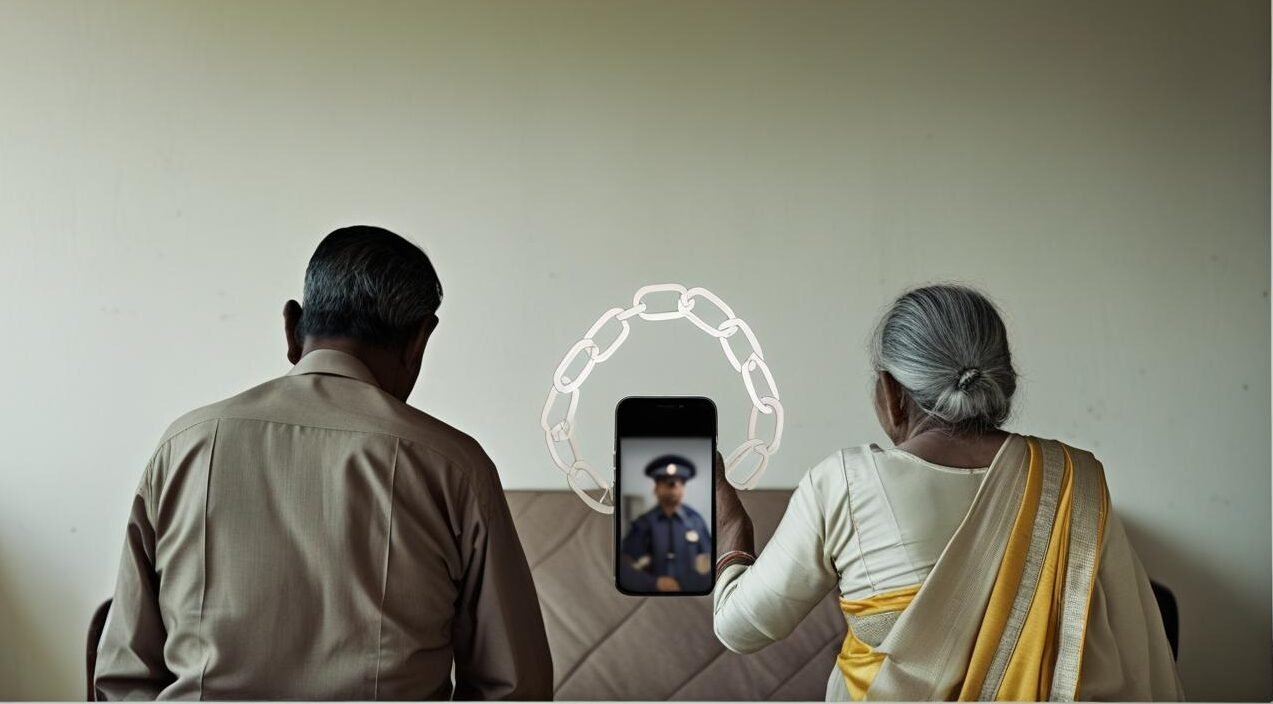An 81-year-old Chennai resident and his wife were digitally “arrested” and forced to transfer ₹2.27 crore to fraudsters posing as government officials. The couple spent nearly six weeks under psychological captivity, trapped in a terrifying simulation of a fake virtual court, manipulated by advanced voice, language, and video technologies.
A New Digital Menace: When Deepfakes Mimic Justice
A harrowing digital deception has emerged from Chennai, where cybercriminals used deepfake tactics and impersonation to entrap an 81-year-old man and his wife in a fake legal proceeding. For over 45 days, the couple was psychologically manipulated and kept in isolation while fraudsters posing as TRAI officials and CBI agents coerced them into transferring ₹2.27 crore, nearly all of their life savings.
The crime began on March 15, when the man received a phone call from someone claiming to be a Telecom Regulatory Authority of India (TRAI) officer. The caller warned him that an illegal bank account in his name had been opened using his Aadhaar credentials, allegedly linked to national security issues. When the elderly man struggled with Hindi, the fraudsters seamlessly switched to Tamil, making the trap even more convincing.
FCRF x CERT-In Roll Out National Cyber Crisis Management Course to Prepare India’s Digital Defenders
From Threats to Courtroom Drama, Every Step Engineered to Break Resistance
After gaining the victim’s trust, the fraudsters gradually escalated the fear. They insisted that the man and his wife were under surveillance and forbidden from speaking to anyone. He was asked to list all of his bank accounts and balances. Then came the first major demand: a transfer of ₹59 lakh to a “secured account” for investigation purposes.
What followed was even more chilling: a summons to appear before a virtual court. The couple, completely isolated and terrified, were presented with a deepfake courtroom complete with a fake judge. The manipulated visuals and courtroom background added a false layer of legitimacy. The judge pronounced that the couple would be placed under digital arrest, a term invented by the fraudsters, and held in virtual CBI custody for seven days. All communication was blocked. Silence was enforced.
The scam continued until the end of April, when the couple, emotionally shattered and financially drained, finally broke free and reported the incident.
Algoritha: The Most Trusted Name in BFSI Investigations and DFIR Services
Digital Scammers Weaponize Virtual Courts, Voice Cloning, and Surveillance Fear
This incident is part of an alarming trend where scammers employ high-tech tools like voice synthesis, AI-generated visuals, and multi-lingual impersonation to target elderly individuals, particularly those with limited digital literacy. Despite rising awareness campaigns, such psychological frauds often go unnoticed until irreversible damage is done.
Cybercrime units are now investigating the source of the virtual courtroom setup, which may have been designed using AI avatars, publicly available video templates, and spoofed video conferencing tools. Authorities have urged banks, telecom regulators, and internet service providers to amplify alert systems for vulnerable senior citizens.
About the author – Prakriti Jha is a student at National Forensic Sciences University, Gandhinagar, currently pursuing B.Sc. LL.B (Hons.) with a keen interest in the intersection of law and data science. She is passionate about exploring how legal frameworks adapt to the evolving challenges of technology and justice.


